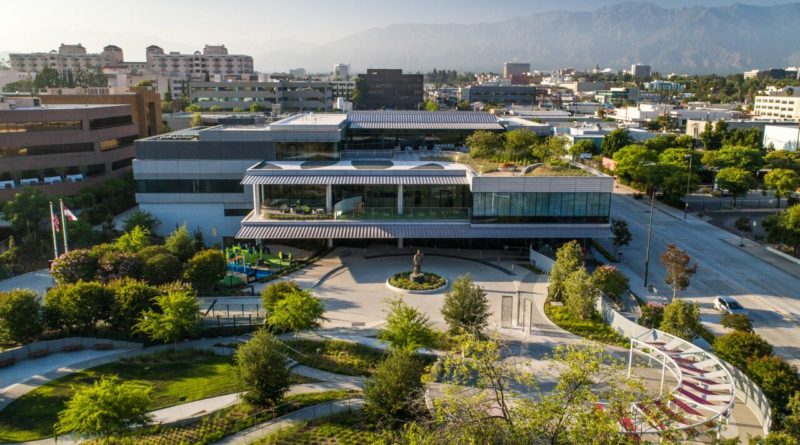CO Architects Recognized for Shriners Children Medical Center Design
By Roxanne Squires
PASADENA, Calif. — CO Architects was recently recognized by local and national organizations for two different major healthcare projects in California and Arizona at the Los Angeles Business Council’s (LABC) 48th Annual Architectural Awards.
One of the recipients of this award was the Shriners for Children Medical Center; a facility that combines a three-story building for surgery, clinical services, rehabilitation and healing landscapes.
Collaboratively designed by CO Architects and SRG Partnership, the facility was a part of an effort to replace and renovate its aging facilities as well as responding to the hospital’s new business model of focusing on outpatient services for young patients.
Now, Shriner’s new 74,800-square-foot center concentrates on outpatient services to better meet its mission of providing care to young patients.
The teams’ goal was to create a design that leverages evidence-based design strategies, the redevelopment of a suburban site, and an outward-facing building design that provides a positive emotional journey for patients and families.
The two-acre site is separated into a modern, medical building on the northern half of the property while rehabilitation gardens and outdoor gathering areas are situated in the southern part. The new medical facility is also half the size of its predecessor, yet can service three times the number of patients.
The design incorporates a garden forecourt and upper-story terraces to draw people outside to connect with nature and their surroundings.
The contemporary architecture of sweeping horizontal planes, cantilevers, and setbacks, along with region-sensitive landscape, is consistent with the modernist legacy of Pasadena.
Looking at the interior, CO Architects and SRG focused on color and shape, while avoiding childish clichés.
The interiors feature playful, colorful themes based on the ocean, forest, and sky with custom-designed murals depicting flora and fauna in colorful silhouettes run along the corridors, fostering a welcoming discovery on the way to waiting areas and treatment rooms, and working as positive distractions for the child patients. The center also touts vibrant furnishings arranged in various ways to accommodate families and visitors.
Furthermore, environmentally sensitive strategies helped form the architecture to improve patient comfort, encourage healing, and save energy and operating costs. Energy-efficient glazing, protective overhangs and highly efficient mechanical systems are designed to offset energy use.
“It was important to maximize natural light, not only for the healing factor, but also to avoid interiors that felt dark and sterile,” said Fabian Kremkus, AIA, LEED GA, design principal at CO Architects. “Rooms are configured so light is passed inward from perimeter spaces, while internal courtyards allow daylight to reach the center of the building.”
Kremkus continued, stating that in addition to the patient check-in, exam rooms, and x-ray areas on the ground floor – the team also integrated a low-dose imaging system and prosthetic limb manufacturing space.
In the main lobby, an interactive feature wall draws kids into the space and changes images with kinetic motion ignited by touch. LED lighting is used in all hallways and exam and x-ray rooms where patients can alter the color of the illumination, which provides a pleasant distraction from the clinical processes taking place.
The second floor features pre-operative and post-anesthesia care units that are both visually and acoustically private to maintain patient dignity. Within these spaces, patients can control room lighting, entertainment, and education systems, as well as nurse assistance needs, giving them greater autonomy and sense of control.
The third-floor medical library features a connection to the operating rooms via an electronic video integration system to view surgeries as they are happening. On the roof, light monitors with automated louvers provide shading when necessary from the bright summer sun to preserve energy. Additionally, large portions of the glazing on the south and east side feature integrated specular louvers to enhance daylighting and mitigate solar heat gain.
Construction on the center began in 2015 and wrapped up in 2017.
The design team also included Rios Clementi Hale Studios as the landscape architect and DPR Construction as the general contractor.

